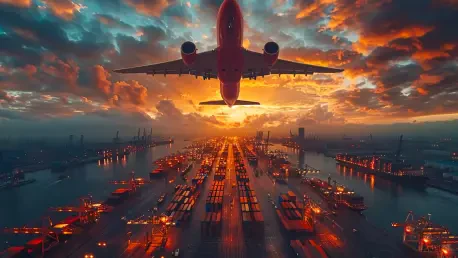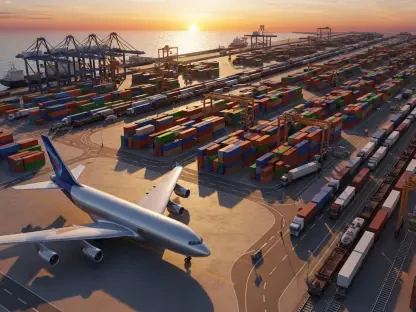In the current landscape of global trade conflicts, the aviation sector has been profoundly affected. As China halts Boeing aircraft deliveries amidst the ongoing trade war with the United States, critical questions arise. This market analysis delves into the strategic maneuvers and economic imperatives that may compel China’s airlines to resume these crucial orders. By examining the historical context, evaluating the suspension, and exploring future directions, we aim to provide a comprehensive understanding of the aviation industry’s adaptive strategies.
Navigating Historical Context in Aviation and Trade
Understanding the historical interplay between China and the United States in aviation is key to grasping current developments. For decades, Boeing has been integral to Chinese airlines, supplying not only aircraft but also essential aerospace components. However, trade tensions, especially during the Trump Administration, introduced complexities that reverberate in today’s market decisions. As tariffs increased and trade policies shifted, these historical dynamics became a backdrop for understanding the current suspension of Boeing orders.
Strategic Pause: China’s Negotiation Tactic Analysis
China’s decision to halt new Boeing aircraft orders is widely viewed as a strategic move within broader trade negotiations. This tactic, while impactful, presents challenges, given Chinese airlines’ reliance on Boeing’s advanced technology. The operational efficiencies and technological innovations provided by Boeing are vital for maintaining competitive airline services. Nevertheless, using this suspension to gain leverage in trade talks affords immediate benefits. The delicate balance between strategic advantage and operational necessity is a critical factor in this analysis.
Economic Necessities: Sustaining Fleet Operations
The reliance of Chinese airlines on Boeing jets and U.S.-made aerospace parts highlights an economic imperative that cannot be overlooked. Maintaining fleet sustainability without these components is nearly impossible. Compounding this pressure, global players like India express readiness to purchase Boeing aircraft, amplifying the urgency for China to consider resuming orders. A comparative analysis of Boeing and its competitors underscores the potential risks of an extended suspension, which could inadvertently weaken China’s aviation sector.
Regional Dynamics and Sectoral Dependencies
Regional and strategic factors add another layer of complexity. China’s aspiration to lead in global aviation technology mandates ongoing collaboration with established players like Boeing. The aviation industry’s interconnectedness and dependence on global supply chains complicate efforts to replace Boeing’s offerings. Innovations and new methodologies in aircraft maintenance further emphasize the sectoral dependencies critical for operational effectiveness. Misconceptions about the ease of replacing major suppliers highlight the intricate dependencies unique to modern aviation.
Trends and Projections: Shaping Future Directions
Several emerging trends and potential shifts are poised to reshape the aviation landscape. Technological advancements, economic adjustments, and evolving regulatory frameworks will likely influence China’s ability to sustain a prolonged halt on Boeing orders. Predictions of increased globalization and interconnected trade practices suggest that resuming Boeing deliveries might soon become essential. Industry experts foresee a heightened need for Boeing’s cutting-edge aerospace goods, indicating a probable resumption of orders in the near future.
Strategic Insights and Recommendations
A pragmatic approach is critical in navigating the trade conflict’s complexities. For aviation industry stakeholders, understanding the balance between major suppliers and national strategies offers valuable insights. Diversifying supply chains and enhancing negotiation tactics are actionable strategies to mitigate geopolitical tensions. Additionally, fostering innovation and strategic alliances can help safeguard against similar disruptions in the future.
Reflecting on Key Implications
The trade war’s challenges underscored the interdependence between China and Boeing, suggesting an imminent resolution. Recognizing the strategic and operational imperatives was pivotal for navigating the complex landscape ahead. The aviation industry, as a critical component of global trade, highlighted broader implications extending beyond immediate geopolitical considerations. Addressing these aspects will be essential for both maintaining competitive operations and fueling future growth in the sector.









